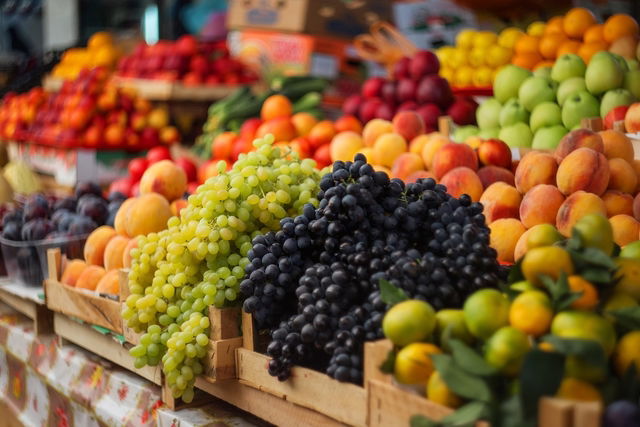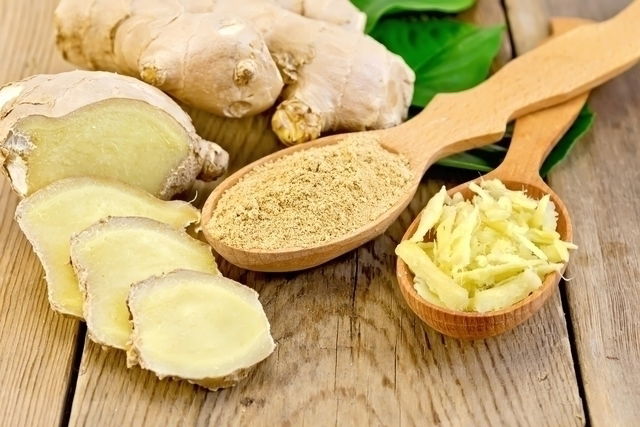Alkaline foods produce alkaline waste during digestion, which helps to regulate metabolic acid that is naturally produced by the body and eliminated through the urine. Alkaline foods can help to protect the body from inflammation and oxidative stress caused by acid, which can help to prevent conditions like diabetes, heart attack and cancer.
It is important to highlight that alkaline foods do not necessarily need to have an alkaline pH. Foods are considered to be alkaline when the breakdown during digestion produces alkaline waste, which neutralizes acid.
Alkaline foods like fruit, vegetables and spices are rich in antioxidants, fiber and vitamins which promote good health and help to prevent diabetes like diabetes, high blood pressure or cancer. However, there is no scientific evidence to support that alkaline food causes pH changes in the body.

Types of alkaline foods
The most common alkaline foods are:
1. Fruit
All fresh fruit, like avocado, oranges, grapes, watermelon, melon and apples are rich in fiber and antioxidants that also contribute to pH regulation in the body. Fruits can also improve intestinal function, keep you fuller and prevent diseases like obesity, heart attack and high blood pressure. Learn more about high-fiber foods you can add to you diet and the health benefits associated with them.
Although fruits like lemons or oranges have an acidic pH, they do not contribute to acid in the body. During digestion, acidity in the fruit is neutralized by acid in the stomach, which is much stronger. Therefore, acidic or citric fruits do not provide more acid to the body, and they are considered to be important alkaline foods.
How to use: You should eat fruit on a daily basis and aim for to include it in 3 meals. You should opt for whole fruit, with peels and seeds as appropriate.
2. Vegetables
Fresh vegetables, like asparagus, lettuce, tomato, garlic, cauliflower, cucumber, carrots, spinach, broccoli and potatoes, are alkaline foods, as the digestion of these foods help to reduce acidic waste in the body. They can help to prevent health conditions like diabetes or atherosclerosis.
Because of their antioxidant action, vegetables protect tissues on a cellular level, and help to prevent the development of cancer and early skin aging.
Vegetables are also rich in fiber, which can help to prevent constipation and keep you full.
How to use: You should eat vegetables on a daily basis, and can be included in your lunch and dinner. You should eat fresh vegetables whenever possible.
3. Herbs and spices

Herbs and spices, like turmeric, cinnamon, pepper, ginger, mint or basil, are foods that are rich in antioxidants and minerals, like potassium and magnesium. These help to regulate metabolic acid, and help to preserve the muscles and prevent illnesses like hypertension and obesity.
In addition to having the potential to decrease body pH, herbs and spices have anti-inflammatory properties, which can be beneficial for the treatment of inflammatory diseases like rheumatoid arthritis.
How to use: Herbs and spices can be used daily to season foods or taken as teas.
4. Natural fats
Natural fats found in foods like walnuts, chestnuts, flaxseeds, pumpkin seeds and extra virgin olive oil are alkaline foods. They help to neutralize or reduce the production of acid.
It is important to point out that for vegetable oils to be considered alkaline, they should be minimally processed. You should choose oils that are cold-pressed when possible.
How to use: You should eat natural fats pm a daily basis, at lunch or dinner or as a snack.
Difference between alkaline and acidic food
Acidic foods tend to increase acidic waste and its elimination in the urine, which can cause oxidative stress and contribute to the development of conditions like cancer and hypertension.
Some acidic foods include legumes, cheese, meat, fish, eggs and processed foods, like soda, instant pasta and ice cream.
Learn more about an alkaline diet and the health benefits it can provide.
How food can affect pH in the body
Food is important for the regulation of pH levels in the body, as, during digestion, they can increase or decrease the production of acid.
The digestion of alkaline foods can reduce the elimination of minerals like calcium in the urine, which can protect the kidneys from kidney stone formation, protect the bones from damage, and reduce muscle mass loss. You should consume alkaline foods on a daily basis.
Acidic foods (like ice-cream and soda), high-protein foods (like meat, eggs and cheese) and refined sugars generally cause an increase of acid in the body. This can lead to inflammatory diseases and cancer, which is why they should be consumed in moderation.
There are no studies that support the effect of eating alkaline or acidic foods on the body. Therefore, it is best to consult a registered dietitian about nutritional advice, as a health care professional will thoroughly assess your health history and current habits to determine a meal plan appropriate for your goals.
Healthy alkaline recipes
Alkaline foods can be included in healthy recipes on their own or with other foods:
1. Smoothie made with apples, oranges, ginger and cinnamon
Smoothies prepared with alkaline foods like fruit, ginger and cinnamon can be a great snack option:
Ingredients:
- 1 apple
- 1 orange
- 100 ml of water
- 1 teaspoon of ginger
- 1 teaspoon of cinnamon
How to prepare:
Wash the fruits and remove the peel from the orange. Cut the 2 fruits in cubes and then place all ingredients and blender. Mix until well-combined.
2. Sauteed spinach with carrots, broccoli and garlic
Sauteed veggies are a healthy way to consume alkaline foods:
Ingredients:
- 150g of spinach
- 1 small carrot
- 100 g of broccoli
- 2 cloves of garlic
- 2 tablespoons of extra virgin olive oil
- 1 pinch of salt
- Black pepper, to taste
How to prepare:
Boil the broccoli until al dente, then strain the water and cut the florets into 4 parts. Wash and grate the carrots. Dice the garlic and sauté in a frying pan with the olive oil. Place the frying pan on medium heat and add the carrots and broccoli. Wash and add the spinach to the pan. Season with salt and black pepper and allow to cook for an additional 5 minutes.
